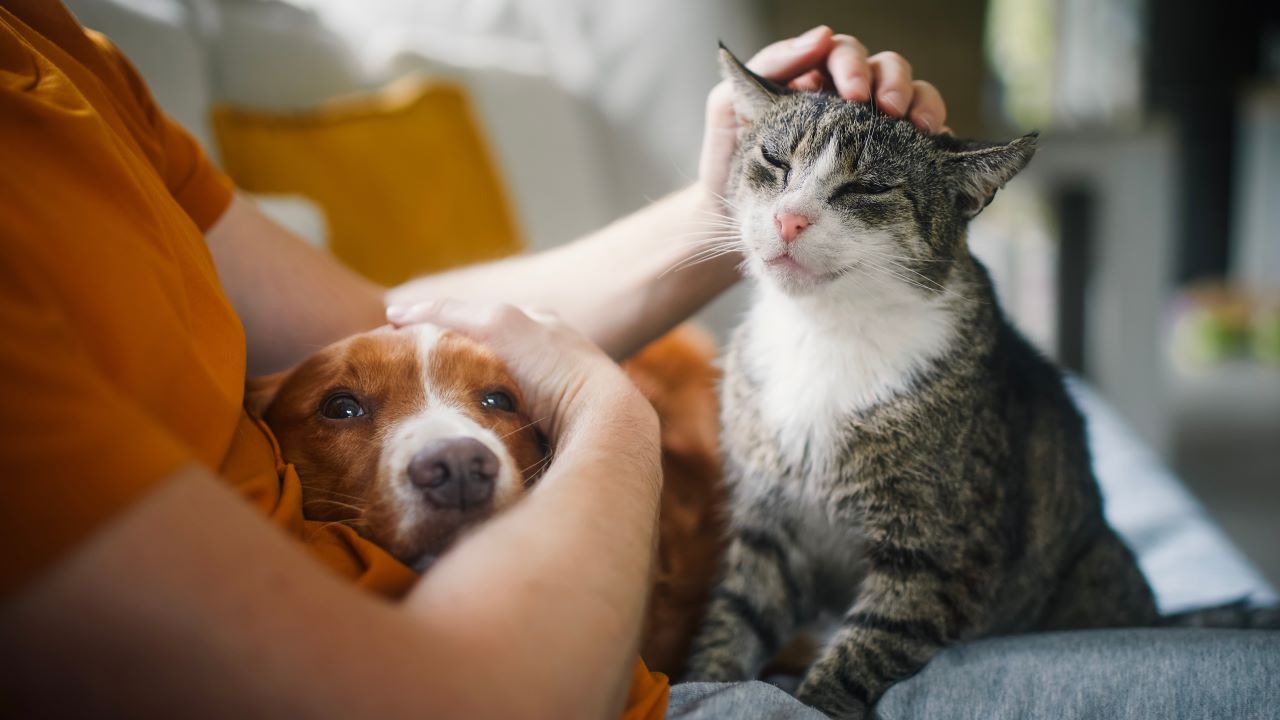Auburn-community partnership brings pet housing, veterinary care to domestic violence intervention program

Domestic violence survivors served by the Domestic Violence Intervention Center (DVIC) of East Alabama will have the option to take their pets with them to a safehouse starting in 2025.
Auburn University faculty, the DVIC and Opelika Animal Hospital partnered to secure a Safe Housing grant from national animal welfare nonprofit RedRover. Most pets living in homes with domestic violence are abused, and this program will ensure the safety of both survivors and their animal companions.
"This makes a difference for survivors in that they will no longer have to choose between getting to safety and their pet," said DVIC Executive Director Zenene Davis. "We have had survivors in the past who had to find someone to care for their pets before they could get to safety and also have had survivors remain in dangerous situations because they could not bring themselves to leave their pet."
The $60,000 grant, funded by PetSmart Charities, will support pet housing, food and supplies, veterinary care and off-site boarding.
The DVIC's Safe Housing Pet Program includes a shelter for cats, a shelter for dogs and a visiting/play area. Other types of pets will be accommodated on a case-by-case basis. The DVIC will also provide pet food and supplies as needed.
College of Veterinary Medicine faculty, including Assistant Clinical Professors Brendan Bergquist and Phillip Moon, will provide intake and ongoing veterinary care on site. Opelika Animal Hospital Veterinarian Gary Hunt also arranged a reduced fee for the DVIC to board animals who need to be housed off site for quarantine, behavioral or other reasons.
Hunt, Bergquist and Moon signed on to the grant application to preserve the human-animal bond, which improves mental health and recovery after a crisis.
"Being involved in this program is giving me the opportunity to preserve the bond between the domestic violence survivor and their pet," Moon said. "This program will provide a sense of peace and stability for the owner and their pet during an otherwise stressful time. We want to provide the pets with the best care and environment possible, so their owner can have a little less to worry about."
Nine out of 10 survivors indicate that their pets are significant to their survival and healing. Half of survivors also would not consider seeking emergency shelter if they had to leave their pet behind.
Assistant Professor of Psychological Sciences Emma Lathan-Powell leads the Learning to Overcome Trauma and Uplift Systems (LOTUS) Lab and studies gender-based violence. She said the DVIC has removed a critical barrier in connecting survivors with services.
"Having these services available will provide a safer option for both the domestic violence survivor and pet," Lathan-Powell said. "Research has shown that leaving a violent relationship is often the most dangerous time for domestic violence survivors. The ability to pick up, grab their pet and go immediately may make an important difference."
Lathan-Powell first connected DVIC leadership with RedRover's Safe Housing grant application. Her work is dedicated to improving survivors' access to help, and after the program launches in 2025, Lathan-Powell will research and evaluate the program to explore how to continuously improve it.
"My role will really be to figure out if this is helpful, if people who are able to keep their pets with them fare better in the long term," Lathan-Powell said. "We will use an iterative approach to community engagement and research, getting information and tweaking things as we go so that they're better tailored to the needs of the survivors and the shelter."
The DVIC's Safe Housing Pet Program is only the second in the state of Alabama.
With the generosity of PetSmart Charities and support from Purina, RedRover and Greater Good Charities launched the 25 by 2025 campaign last year. The goal of this national initiative is to help 25% of domestic violence shelters become pet friendly by the end of 2025.
"We're thrilled to award the Domestic Violence Intervention Center a $60,000 Safe Housing grant so they can welcome survivors and their beloved pets onsite," said RedRover President and CEO Katie Campbell. "Keeping survivors and their pets together can be crucial to their healing process, and with each new pet-friendly shelter, lives are saved on both ends of the leash."
Learn more about DVIC services and involvement opportunities at the DVIC website.
If you or a loved one is in a dangerous situation, visit the DVIC website or call the free, 24-hour crisis line for Lee, Macon, Tallapoosa, Randolph and Chambers counties at 334-749-1515.
Tags: Psychological Sciences Community, Outreach and Engagement







